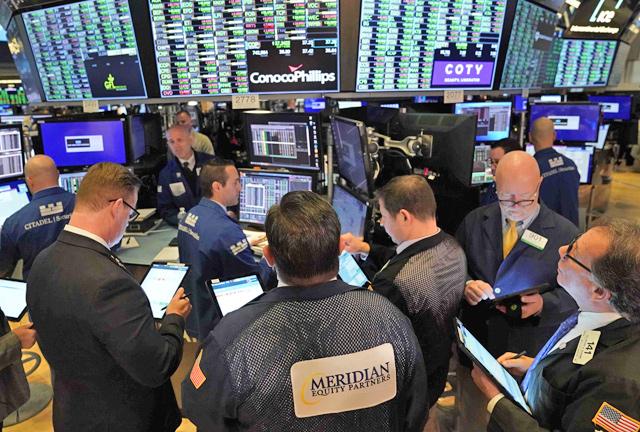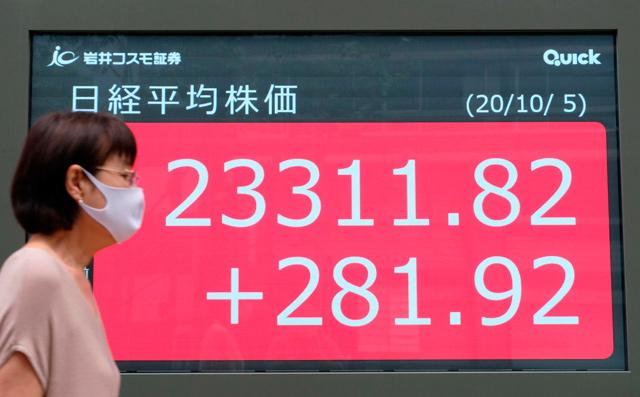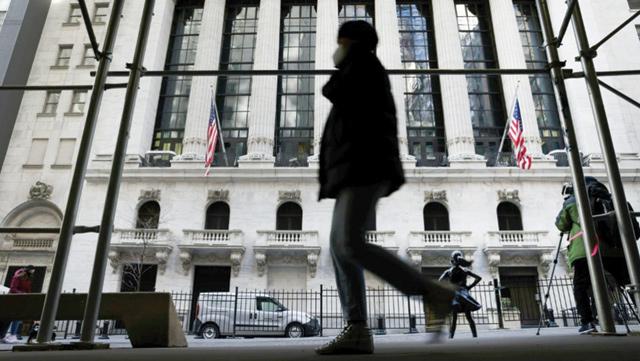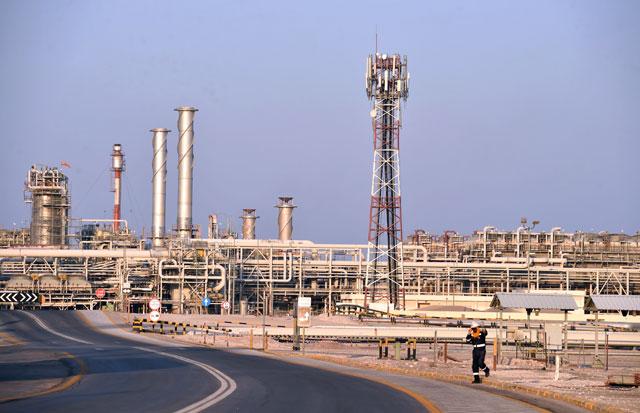You are here
Stocks open higher after ‘Black Monday’, but rebound fizzles out
By AFP - Mar 10,2020 - Last updated at Mar 10,2020

Traders work on the floor of the New York Stock Exchange during the opening bell on Tuesday in New York (AFP photo)
LONDON — A rebound in global stocks following their biggest one-day drop in more than a decade ended faster than expected on Tuesday as markets continued to feel the pinch of uncertainty.
Meanwhile, oil prices jumped more than 7 per cent, having plunged by a third the previous day, in the biggest price swing since the 1991 Gulf War, as Russia reached out to Saudi Arabia, possibly in a bid to mitigate an oil price war.
Global stock markets collapsed on what has become known as “Black Monday”, with the Dow on Wall Street plunging more than 2,000 points, as a potent cocktail of concerns about the coronavirus and oil prices sparked panic selling.
Equities began on Tuesday on the right foot after sentiment was boosted by US President Donald Trump saying late Monday his administration would be meeting lawmakers to discuss economic relief measures to mitigate the impact of the disease as it spreads through the United States.
The mood was also helped by news that Chinese President Xi Jinping had visited Wuhan, the centre of the virus outbreak, lifting hopes that the country is well on track to recovery as new infections fall.
The news came after weeks of quarantines that have rocked the local and global economy.
Asian and Middle East stock exchanges shot higher, recovering a good chunk of their Monday losses.
European indices as well as those on Wall Street also jumped, but the gains faded with European markets closing in the red.
“Last night, President Trump said he will push for a payrolls tax cut as well as assistance for hourly employees who have been impacted by the health crisis,” said market analyst David Madden at CMC Markets UK.
“The proposal hasn’t come to fruition yet, and that is why stocks turned sharply lower,” he added.
‘Lot of question marks’
Mikael Jakoby, head of continental European trading at Oddo Securities in Paris, said on Tuesday’s attempt at a technical rebound “in no way offsets the loss of optimism in the short term”.
“A few small, uncertain announcements about stimulus measures by Trump or the European Central Bank are not going to be enough to restore confidence in the future quickly,” he told AFP.
“There are still a lot of question marks, and we are still in the growth phase of coronavirus cases,” he added.
Shares in Milan ended 3.3 per cent lower, despite Italy’s airing new economic plans to help families and businesses hurt by a sharp drop in tourism over the past month.
Milan stocks had tumbled 11 per cent on Monday.
Dead cat bounce?
Investors often express scepticism about a rebound that follows a heavy fall in a stock or market by referencing the idea that even a dead cat will bounce if it falls from a great enough height.
Mentions of felis catus stalked broker notes on Tuesday.
“With the whiff of a springy rotting feline seeping into trading rooms, the European markets completely erased their gains on Tuesday,” said Connor Campbell at Spreadex.
Oil prices doggedly remained higher, however, as some traders were forced to cover their short positions while others went bargain hunting.
Even an announcement by Saudi Aramco that it would boost production only provided a brief reversal, as Russia signalled it could resume its cooperation with the Organisation of the Petroleum Exporting Countries which had kept a floor under prices for the past several years.
“Traders took that as a sign that Moscow might be open to the idea of playing ball with the Saudis,” said CMC Markets UK’s Madden.
Related Articles
LONDON — Stock markets gained ground on Tuesday while investors mulled the level of US electoral uncertainty after President Donald Trump re
LONDON — Stocks markets on both sides of the Atlantic pushed into record territory on Tuesday on growing confidence in the global economic r
LONDON — Oil prices slid Wednesday after Saudi Arabia and Gulf partner UAE stepped up a price war with plans to flood the global markets whi



















